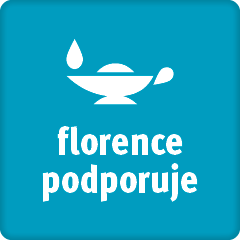


Číslo 3 / 2014
Cataracts

A cataract is an eye disease, which involves a clouding of the lens leading to hazy or blurred vision as if looking through dirty glass or a frozen window. In the developing countries, cataracts are the principal cause of blindness despite the possibilities offered by modern ways of treatment. Currently, cataracts are treated surgically, by removing the cloudy human lens and replacing it with a thin artificial lens.
Nurse: Hello, Mrs Blunt. What brings you here?
Patient: Hello, nurse. I feel my vision has got worse. As if there was some kind of fog in my left eye. It doesn’t disappear even when I put in eye drops, and I also have the feeling that the left eye doesn’t see colours as bright as the right eye. What do you think it might be?
Nurse: How old are you, Mrs Blunt?
Patient: I’m 65.
Nurse: And except for the fog, can you see well? I mean, can you see objects in sharp focus?
Patient: No, they appear blurred.
Nurse: I see. I’ll send you to the doctor straight away so he can examine you. With regard to your age, it could be a cataract.
Patient: A cataract? Oh no! My mother had it and she became blind.
Nurse: Don’t be afraid. The doctor will first check you to see what’s the problem. And even if it were a cataract, nowadays there are much better options of treatment than there used to be a few years ago.
Patient: Really? What kinds of treatment?
Nurse: The cloudy lens is removed surgically with a laser and an artificial intraocular lens is inserted in its place.
Patient: Does it mean I would have to be anaesthetised?
Nurse: No. This surgery is performed under topical anaesthesia, which means that special anaesthetic drops are applied to the cornea and conjunctiva to numb the eye, so the patient doesn’t feel any discomfort during the surgery.
Patient: I see. And how long does it take to be able to see again?
Nurse: The vision stabilises generally two to four weeks after the surgery. The doctor is available to see you, you can go in.
Patient: Thank you very much, nurse. I wonder what the examination will show.
| clouding | zakalení, zamlžení |
| hazy | zamlžený |
| blurred | rozmazaný, zastřený |
| currently | v současnosti, v dnešní době |
| to replace | nahradit, vyměnit |
| artificial | umělý |
| sharp | ostrý; bystrý |
| straight away | okamžitě, rovnou |
| with regard to | vzhledem k |
| blind | slepý, nevidomý |
| to insert | vložit |
| nowadays | nyní, v dnešní době, dnes |
| to numb | znecitlivět, ochromit, zbavit citu |
| to wonder | říkat si, být zvědavý na; divit, podivovat se |
Lekce angličtiny pro časopis Florence připravuje překladatelská agentura ACP TRADUCTERA (www.traductera.com).
Ilustrační foto – zdroj: senior-care-central.com
Další články v tomto čísle
- Kdyby mrkev obsahovala alkohol, tak by byli králíci pořád na maděru
- Nový občanský zákoník: V čem se dotkne práce sestry?
- Profesor Jan Deyl – oftalmolog se srdcem plným lásky
- Sestry svou práci vykonávají skvěle, ale zapomínají při ní na srdce
- Nebezpečná akantaméba
- Pomocná ruka na cestě tmou
- Když se řekne šedý zákal
- Vyšetření dětských očí
- Kvalita zraku ve vztahu ke specifickým poruchám učení
- Význam komunikace při prevenci násilných incidentů





















